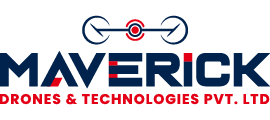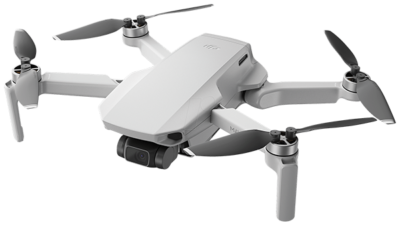Drone Training
In the dynamic landscape of modern technology, Unmanned Aerial Vehicles (UAVs), more commonly known as drones, have emerged as revolutionary tools with multifaceted applications. As the demand for skilled drone operators continues to surge across various industries, the significance of comprehensive and specialized training becomes increasingly evident. Drone training institutes play a pivotal role in equipping individuals with the knowledge and skills necessary to navigate the complexities of drone piloting, aerial photography, surveying, and a myriad of other applications. These institutes serve as crucibles of expertise, blending theoretical education with hands-on practical experience to foster a new generation of drone professionals. In this era where the skies are becoming an extension of our workspace, understanding the nuances of drone technology is not just a skill; it's a gateway to unlocking endless possibilities. This blog delves into the realm of drone training institutes, unraveling the crucial role they play in shaping the future of aerial technology and the professionals who harness its potential.
Remote Pilot Training Organisation (RPTO) in India
The proliferation of Remote Pilot Training Organizations (RPTOs) reflects the burgeoning demand for skilled and certified drone operators in various industries. This surge can be attributed to the expanding applications of Unmanned Aerial Vehicles (UAVs) across sectors such as agriculture, construction, cinematography, surveying, and public safety. As governments worldwide establish regulations and licensing requirements for drone pilots, there is a heightened need for comprehensive training programs that cover both theoretical knowledge and practical skills. The growing number of RPTOs signifies a proactive response to this demand, as these organizations play a critical role in shaping a qualified and safety-conscious drone workforce. Additionally, advancements in drone technology, such as increased automation and the integration of Artificial Intelligence (AI), necessitate specialized training to ensure pilots can effectively harness the capabilities of these evolving platforms. The competitive nature of the drone industry also encourages RPTOs to differentiate themselves by offering diverse and tailored courses, leading to a more skilled and versatile pool of remote pilots. However, as the industry expands, it is crucial for regulatory bodies and RPTOs to collaborate to establish standardized, industry-wide training protocols to maintain safety and proficiency standards. Overall, the growing number of Remote Pilot Training Organizations underscores the industry's commitment to meeting the demand for skilled drone operators and ensuring the safe and responsible integration of UAVs into various sectors.
Drone Pilot License Enquiry
Career Opportunities in Drone Industry
As technology continues to advance and regulatory frameworks mature, the demand for skilled professionals in the drone industry has reached unprecedented levels, spanning various fields and sectors. This in-depth analysis explores the multifaceted career opportunities within the drone industry, shedding light on the evolving landscape and the skill sets that are increasingly in demand.
One of the most visible and exciting career paths within the drone industry is aerial cinematography and photography. Drones equipped with high-resolution cameras have revolutionized the field of cinematography, allowing filmmakers and content creators to capture breathtaking aerial shots that were once prohibitively expensive or logistically challenging. Skilled drone pilots with an eye for composition and storytelling are in high demand, working on projects ranging from feature films and documentaries to advertising campaigns.
In the realm of geospatial technology, drones have become indispensable tools for surveying and mapping. Their ability to swiftly and accurately capture aerial imagery makes them ideal for land surveying, urban planning, and cartography. Professionals in this field utilize specialized software to process drone-generated data, creating detailed maps, 3D models, and topographical surveys. With the ongoing global emphasis on infrastructure development and environmental conservation, the demand for drone surveyors continues to grow.
Precision agriculture has seen a significant boost with the integration of drones. Agricultural drones equipped with sensors and cameras can monitor crop health, assess soil conditions, and optimize irrigation. This data-driven approach enhances efficiency, reduces resource usage, and maximizes yields. As the agriculture industry embraces smart farming practices, there is an increasing need for drone pilots and agricultural experts who can interpret and apply drone-generated data to improve farming processes.
Drones have become invaluable tools for public safety and emergency response teams. In disaster-stricken areas, drones equipped with thermal imaging cameras can quickly assess damage, locate survivors, and aid in search and rescue missions. Police and fire departments utilize drones for surveillance, crowd monitoring, and incident management. As public safety agencies recognize the benefits of drone technology, there is a growing demand for certified pilots and drone program coordinators in these sectors.
The drone industry plays a crucial role in infrastructure inspection and maintenance, offering a safer and more cost-effective alternative to traditional methods. Drones equipped with high-resolution cameras and sensors can inspect bridges, power lines, pipelines, and other critical infrastructure assets with precision. Skilled drone pilots, often working in collaboration with engineers and inspectors, are essential for conducting thorough and efficient inspections.
Drones have become powerful tools for environmental monitoring and conservation efforts. They can be used to track wildlife, monitor deforestation, and assess the impact of climate change on ecosystems. Conservation organizations and environmental agencies increasingly rely on drone technology to gather data that informs conservation strategies. Professionals in this field contribute to the preservation of biodiversity and sustainable environmental practices.
As drone technology evolves, there is a growing demand for professionals in the realm of software development and technology. Drone software engineers design and develop applications that control drone flight, process data, and enable advanced functionalities. With the rise of automation, artificial intelligence, and machine learning in the drone industry, software developers and engineers are pivotal in creating innovative solutions that enhance drone capabilities.
The expanding drone industry has created a parallel demand for educators and trainers. Institutions and organizations offering drone training programs play a crucial role in equipping individuals with the skills and knowledge needed to navigate the complexities of drone piloting, regulations, and applications. Drone instructors, curriculum developers, and training coordinators contribute to the development of a skilled and safety-conscious workforce.
Journalism has also been significantly impacted by the integration of drones. News organizations utilize drones to capture aerial footage for reporting, especially in challenging or inaccessible areas. Drone journalists, often working in collaboration with traditional news teams, provide a unique perspective and enhance the visual storytelling capabilities of media outlets.
The concept of drone delivery services has gained traction in recent years, with companies exploring the feasibility of using drones to transport goods and packages. As the logistics industry embraces drone technology for last-mile deliveries, there is a growing demand for professionals who can manage and optimize drone delivery operations.
Drone Education
Drone education has emerged as a critical component in the evolution of the unmanned aerial vehicle (UAV) industry, as academic institutions seek to bridge the gap between technological innovation and comprehensive training. Recognizing the need for a standardized approach, educational programs focusing on drone technology have proliferated, offering students a diverse range of courses encompassing both theoretical knowledge and hands-on practical skills. These programs often cover a spectrum of topics, including drone piloting, regulations, aerial data analysis, and the development of applications specific to industry needs. A key aspect of drone education is its alignment with industry standards, ensuring that graduates are not only well-versed in the technological aspects of drone operation but are also cognizant of the legal and ethical considerations associated with the use of UAVs. Industry standards, such as those set by aviation authorities and regulatory bodies, play a pivotal role in shaping curriculum frameworks. Adherence to these standards ensures that drone education programs produce graduates who are not only proficient pilots but are also well-versed in safety protocols, airspace regulations, and ethical practices. As the drone industry continues to mature, the integration of standardized education not only enhances the quality of drone operators but also fosters a sense of responsibility and accountability among professionals who will be at the forefront of shaping the future of aerial technology. This nexus between drone education and industry standards not only ensures the competence of drone pilots but also contributes to the overall safety, ethical use, and sustainable growth of the UAV industry.
While the career opportunities in the drone industry are diverse and promising, it is essential to acknowledge the challenges that come with this rapidly evolving field. Regulatory frameworks are continually adapting to the integration of drones into airspace, and professionals in the industry must stay abreast of changing regulations and licensing requirements. Privacy concerns, safety considerations, and public perception also pose challenges that professionals in the drone industry must navigate.







